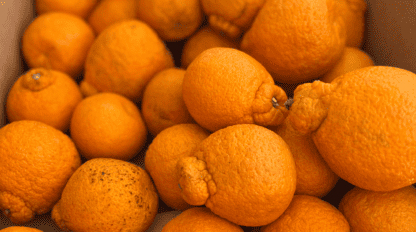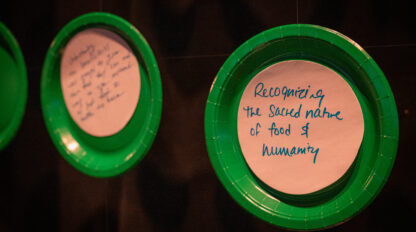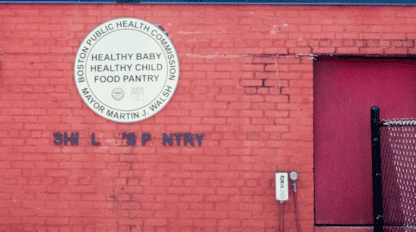12 tips for learning/doing this Earth Month + beyond

Collective efforts to prevent wasted food, help build a more sustainable food system, and tackle the climate emergency shouldn’t end with Earth Month. That’s why we’re rounding up our favorite tips for anytime environmental-focused learning and doing! There’s something here for everyone — regardless of your age, prior knowledge, experience, or budget.
Learn
Food literacy – understanding how the food system works, where food comes from, and how to make the most of it – helps us to be better stewards of our food resources and encourage others to do the same. For more on that, check out the findings from the Campaign for Food Literacy here in Massachusetts.
1. Dive into the EPA’s resources for “Educating Youth About Wasted Food.”
With toolkits and reference materials geared toward parents, teachers, and student groups, it’s a great starting point for introducing children to the impact of wasted food on the planet and everyone who calls it home.
2. Explore ReFED’s Roadmap to 2030
This comprehensive report touches on the problem of wasted food — and opportunities to waste less (with applications for individuals and businesses).
3. If you missed our webinar during Food Waste Prevention Week earlier this month, watch the recording.
Featuring a panel with Chris Beling (Project Engineer, U.S. EPA), Megan Mayer (Professor and Campus Sustainability Coordinator, Framingham State University), and Irene Li (Chef and Co-Founder, Mei Mei, cookbook author, and a member of Spoonfuls’ Culinary Board), it’ll give you a sense for the ways issues like wasted food, climate change, and food insecurity are connected.
4. Screen one of these webinars from Spoonfuls’ coalition partners.
- “Policy That Produces Progress: Model Ordinances and Other Governance Tools to Reduce Food Waste” Environmental Law Institute
- “Ending Food Waste at Home, featuring author Stephanie J. Miller” Food Rescue Hero
- “Food Waste Action Part: Reducing Food Waste in a Warming World” Climate Action Now
5. Follow Spoonfuls on social media as one way to stay informed of the issues.
We’re on Instagram, Facebook, and LinkedIn @spoonfulsfoodrecovery.
Do
Apply your learning!
6. Use our Personal Wasted Food Audit tool to assess how much and what you waste and to receive targeted ideas for wasting less.
Leverage those take-aways to develop a plan to waste less at home.
7. Take (and share) Spoonfuls’ “Pledge to Waste Less.”
8. Become a low-/no-waste cook!
Check out Food Waste Feast and the cookbook, Perfectly Good Food, from sibling chefs Margaret and Irene Li for inspiration. Also, ICYMI: Check out our recent webinar (linked above) to hear more from Irene.
9. Follow and/or get involved with your local food policy council or other coalition working on issues related to wasted food (like these, which Spoonfuls’ is a part of):
- Boston Food Access Council (BFAC)
- Worcester Food Policy Council and other Worcester area food access groups
- MA Food System Collaborative Food Waste Reduction Network
- Zero Food Waste Coalition
10. Share what you know.
From sparking up casual conversations with friends and colleagues, to sharing (or resharing) stories about wasted food on your social, to inviting a Spoonfuls speaker into a community meeting or your workplace, these are all great ways to introduce new people to the issues — and opportunities for action.
11. Advocate.
Contrary to popular belief, there’s absolutely no experience necessary to tell your elected officials and other decision-makers where you stand and how you hope they’ll act. More here.
12. Support your local food recovery organization.
Spoonfuls, as one example, relies on philanthropic support to meet our food recovery mission – and every $1 you give enables our team to distribute a pound of food. You can give or start a fundraiser for Spoonfuls.
Have another idea for anytime, environmental-focused learning/doing? Contact our Communications & Public Affairs Team. We may share with our community on social media.


